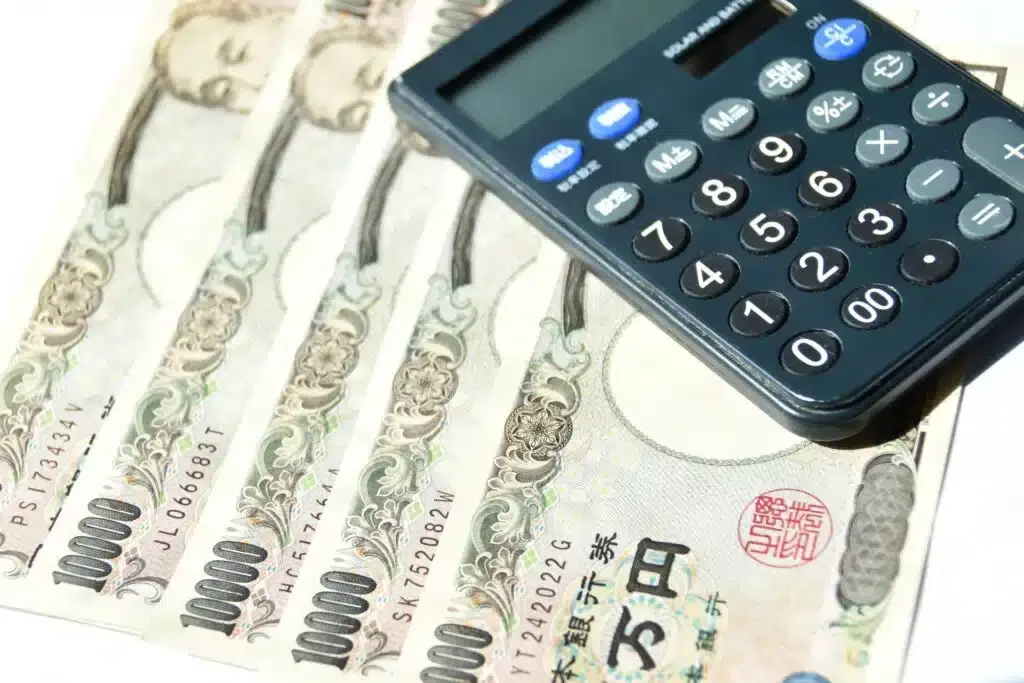What Companies Should Pay Attention to When 'Purchasing Paid Leave' from Retiring Employees: The Contents of the 'Written Document'

In this article, we will explain about paid leave buyback, a topic often discussed in the information section of job recruitment sites. To begin with, paid leave is a vacation where wages are paid to workers who have continued to work for six months from the date of employment and have attended more than 80% of all working days during that period (as stipulated in Article 39 of the Japanese Labor Standards Act). Can a company buy back this paid leave? Also, if a retiring worker requests a buyback of paid leave, does the company have an obligation to comply? Furthermore, if the company agrees to buy back paid leave from a retiring worker, what kind of documents (such as a pledge) should be prepared? We will explain these points in accordance with the following table of contents.
Is Paid Leave Buyout Possible?
Is it actually possible to buy out paid leave? To conclude upfront, the buyout of paid leave is generally not permitted, but there are exceptions.
Generally Not Permitted
The reason why paid leave is stipulated in the Japanese Labor Standards Act is to improve the physical and mental health of workers and to enhance work efficiency. Furthermore, the acquisition of paid leave is a right of workers stipulated in the Japanese Labor Standards Act. For these reasons, the buyout of paid leave is generally not permitted. If a company could simply buy out paid leave, it would contradict the purpose of the paid leave system.
Exceptions Where Paid Leave Buyout May Be Possible
However, even if a company buys out a worker’s paid leave, it is exceptionally permitted in the following cases where no disadvantage occurs to the worker.
- Unused paid leave at the time of resignation due to job change, etc.
- Paid leave that was not used after acquisition and has expired after two years
- Extra-statutory paid leave granted by the company to the worker
About the Buyout of Unused Paid Leave at the Time of Resignation
When a worker resigns with unused paid leave, in practice, it is bought out because the worker cannot claim the acquisition of paid leave from the company after resignation.
Note that for temporary staff registered with a staffing agency, the paid leave is bought out not by the client company, but by the staffing agency. This corresponds to the fact that the staffing agency is the one to claim the acquisition of paid leave.
About Paid Leave That Was Not Used After Acquisition and Has Expired After Two Years
The right to claim the paid leave acquired by a worker expires after two years from the day it can be claimed (Article 115 of the Japanese Labor Standards Act).
It is permitted for a company to deliberately buy out the paid leave that a worker can no longer claim due to the statute of limitations, as it does not contradict the purpose of the system.
About Extra-Statutory Paid Leave Granted by the Company to the Worker
If a company grants more paid leave than stipulated in the Japanese Labor Standards Act, it is permitted to buy out the extra paid leave, as it is not a buyout of the statutory equivalent portion of paid leave. This is because it does not infringe on the worker’s right to acquire paid leave under the Japanese Labor Standards Act.
Is a company obligated to comply if a retiring employee requests a buyout of their paid leave?

So, if a retiring employee requests a buyout of their paid leave, is the company obligated to comply?
To state the conclusion first, a company is not obligated to buy out paid leave. There are court precedents that have denied the claim for a buyout of paid leave from retired employees (Sosei Consultant case, Osaka District Court, Heisei 14.5.17 (2002) Labor Precedent 828, p.14).
As a rule, the buyout of paid leave is not recognized, so if there is no reason to exceptionally allow a buyout of paid leave, the buyout of paid leave is illegal in principle.
On the other hand, as mentioned above, there are cases where a buyout of paid leave is possible, but even in this case, the request for a buyout of paid leave from the employee is not a legally recognized right of the employee. Therefore, whether or not to carry out the buyout of paid leave is at the discretion of the company. Even when an employee who is exceptionally allowed to buy out paid leave retires, the company is not obligated to comply with the buyout request from the employee.
Also, of course, it is not allowed and is a violation of the Japanese Labor Standards Act for the company to demand a buyout of paid leave from the employee.
Documents to Prepare When a Company Buys Back Paid Leave from Retiring Employees (Affidavits, etc.)
When a company buys back paid leave from retiring employees (as previously mentioned, this is one of the exceptional cases where paid leave buyback is possible), what should be taken into consideration when exchanging written documents (affidavits, etc.) with the employee?
The Necessity for a Company to Prepare Documents
Firstly, there is no specific legal provision regarding paid leave buyback, and it is possible to buy back paid leave without exchanging documents if it is an exceptional case where paid leave buyback is possible. However, there is a possibility that misunderstandings about the agreed content between the company and the retiring employee could cause trouble. Therefore, if there is a need to prevent trouble with the retiring employee from occurring in the first place, it is highly necessary to exchange documents.
Documents to Prepare When Buying Back Paid Leave, Clauses Regarding Paid Leave Buyback, and Paid Leave Buyback Amount
Since there is no specific legal provision regarding paid leave buyback, each company has discretion over what kind of document to use, what kind of clause to stipulate, and how much to buy back paid leave for.
Documents to Prepare When Buying Back Paid Leave
Regarding what kind of document to use, affidavits and retirement agreements can be considered. For example, if the company has a standard affidavit that stipulates the reasons for leaving the company and non-competition obligations, etc., it is possible to add a clause about paid leave buyback to these documents and use them as documents related to paid leave buyback.
Please refer to another article for an explanation about retirement agreements.
https://monolith.law/corporate/conclusion-of-retirement-agreement[ja]
Of course, it is also possible to collect affidavits or agreements that only stipulate paid leave buyback.
Considering the content that should be risk hedged according to the circumstances of each retiring employee, you will need to consider what kind of document to use.
Clauses Regarding Paid Leave Buyback
An example of a clause is as follows.
Article X (Paid Leave Buyback)
1 The Company will buy back the unused paid leave of X days of Party B until the retirement date of Party B at a rate of X yen per day.
2 The Company shall pay Party B the total amount of X yen in the preceding paragraph, and shall pay by transferring to the following bank account designated by Party B.
Bank Name
Branch Name
Type of Deposit
Account Number
Account Holder
The company stipulates the number of days of paid leave to be bought back and the buyback amount per day of paid leave.
Paid Leave Buyback Amount
When buying back paid leave, you need to decide how much to set the buyback amount per day, but there is no legal provision regarding the calculation method. Therefore, the company has discretion over how much to buy back paid leave from the employee (although this is a repetition, it is a case where paid leave buyback is allowed in light of the purpose of the system).
The calculation method for the buyback amount could be, for example, the following methods. Which method to adopt is up to the company.
- Follow the calculation method stipulated in the Labor Standards Act regarding wages paid for paid leave
- The amount agreed upon with the employee
- Follow the standards set in the company’s work rules
1. The calculation is based on either the average wage, the usual wage, or the amount equivalent to one-thirtieth of the standard monthly remuneration. This is a method of paying based on the work rules or labor-management agreement that stipulates wages to be paid for paid leave.
2. This is an agreement with the retiring employee on an individually agreed amount.
3. This is a case where the company stipulates in the work rules the amount or calculation method of the buyback amount when the company can exceptionally buy back paid leave from the employee. For example, you can stipulate the buyback amount as “buy back at 6000 yen per day of paid leave”, or stipulate the calculation method of the buyback amount as “the method of calculating the buyback amount per day of paid leave is according to the method of XX”. This method of stipulating the buyback amount or calculation method can be determined at the company’s discretion, taking into account various circumstances such as employment status, position, years of service, job content, etc. However, it is advisable to set a reasonable amount in light of the minimum wage, average wage, and usual wage, etc., so as not to receive undue backlash from employees.
Summary
As explained above, we have discussed the documents and their contents required when a company purchases unused paid leave from a retiring employee. As mentioned, a retiring employee does not have the right to demand the company to buy back their unused paid leave. However, it may be considered to do so from the perspective of risk hedging, such as aiming for amicable retirement. When purchasing unused paid leave, it is advisable to keep a written record to prevent discrepancies in the number of days and amount of paid leave purchased between the company and the retiring employee. We hope this article will be of help to you.
If you wish to consult in detail about individual and specific cases regarding the documentation for purchasing unused paid leave, we recommend seeking advice from a lawyer.
Guidance on Contract Creation and Review by Our Firm
At Monolith Law Office, as a law firm with strengths in IT, Internet, and business, we also provide various services such as contract creation and review to our advisory and client companies.
If you are interested, please see the details below.





















